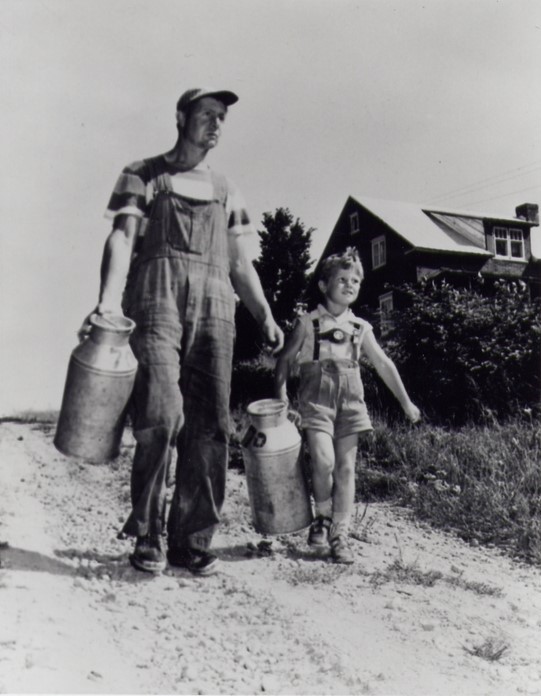German-Canadian Studies is continuing work on its Father-and-Son project with help from three undergraduate research assistants: Michayla—who you might remember from one of our previous posts—Dylan and Rohit. In the first phase of the project, they will search for, analyze, and summarize primary sources, such as autobiographies, memoirs, correspondence and oral histories, as well as existing works on the history of fathers and sons in Canada and elsewhere. They will contribute these analyses to a database, which will be made public and accessible to other researchers at the end of the project. We asked them to introduce themselves and share their reasons for joining the project:
Michayla: “I am excited to assist with research, and look forward to working with GCS. I am a fourth year Honours Political Science student, with a strong interest in history and research. I am most excited to develop a better understanding of how German immigration has shaped Canada and continues to have a cultural impact in our country.”
Dylan: “Hello! My name is Dylan and I am a fourth-year Sociology undergraduate student, with much of my research interests revolving around class conflict and contemporary labour issues. Outside of academia, my passions include video editing, reading and writing, and travelling. As a second-generation Filipino immigrant, several aspects of the German-Canadian Studies 20th century research project really resonated with me. I’m very grateful to be one of the research assistants for this project, and I look forward to honing my research skills, as well as contributing to a holistic understanding of immigration in the past, present, and future.”
Rohit: “My name is Rohit Gupta and I recently graduated with a Bachelor of Art (Honours)–Psychology. Since the beginning of my post-secondary education, research have intrigued me with different theories and statistical insights. As a first-generation immigrant, I am very interested in how different cultures and values unfold in Canada, like German-Canadian Studies, which focuses on German fathers and their relationship with their son. I hope to strengthen my current research skills and learn from diverse project members.”

The Father-and-Son project explores the relationships between fathers and sons throughout the 20th and 21st century, in English and French-speaking Canada. Focusing on German immigrant fathers and their Canadian-born sons, it asks how their relationships evolved during periods of dramatic change, such as the Great Depression, the Second World War, and the Cold War. How did the newcomers to Canada, in particular in their roles as fathers and sons, navigate changing social and cultural landscapes? The project is funded in part by a three-year Insight Grant from the Social Sciences and Humanities Research Council (SSHRC) as well as the Chair in German-Canadian Studies and the University of Winnipeg.
We are looking forward to making progress on this project alongside our research assistants, each of whom contribute unique perspectives and valuable insights to their work. They will have the opportunity to expand their individual research skills and branch out into new topics of study, participating in group interpretation meetings and knowledge mobilization outcomes.
Interested in joining our research team? Keep an eye out for future opportunities on the UWinnipeg career portal!

